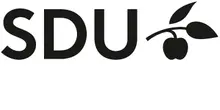Economics Terms A-Z
Capital
Read a summary or generate practice questions using the INOMICS AI tool
The term capital is used differently in different economic contexts. The common theme is that capital usually refers to some productive asset or capability that can be used to contribute to the economy. Below, we will detail some of these different meanings.
Types of capital
Financial capital
Capital is most commonly thought of as money, specifically money used to buy other goods which are then sold for a profit. An example of this would be the money that a business uses to buy its products, such as a retail business buying its clothes. More generally, financial capital can be thought of as assets a company needs to provide its products for sale.
Capital goods
These are things which are used to make goods or services, and as such can be a variety of goods. For example, tools would be a capital good to a handyman; oil rigs would be a capital good for an oil company; wind turbines would be a capital good for an energy company. Capital in this sense is considered one of the major “factors of production” (alongside labor) and is a foundational part of many economic models.
Natural capital/ecological capital
Didn’t think the world had capital? Think again. Natural capital is natural resources, such as air, water, and organisms. This type of capital is arguably the most important, as it includes things like clean drinking water and fertile soil which the world gives us and makes civilization - and life in general - possible. The future of natural capital is dependent on a healthy ecosystem, making the fight against climate change and environmental destruction all the more crucial.
Social capital
Something a little more abstract, social capital includes intangible things like the relationships between people (i.e. networking), as well as cultural heritage and identity. However, it also refers to more tangible things, such as shared public spaces.
Human capital
Human capital is perhaps the most self-explanatory of these terms. You have human capital, and so does this writer, because our knowledge enables us to perform labor and therefore helps the economy grow.
Instructional capital
A controversial definition as it is sometimes thought of as an extension of human capital, this could include the learning materials which make education possible. It is often used to refer to guidance which restricts the actions of people, and is therefore linked to social capital, since guidance often turns into societal norms.
Public capital
An extremely wide-ranging type of capital that includes all government-owned assets. This covers things like roads and railways (assuming they are publicly owned) as well as education, hospitals, emergency services, and systems such as utilities and sewage. It can be both a government outlay and infrastructure itself.
Intellectual capital
This generally refers to the intangible assets of a business or economy. It includes the people who work there, the relationships between them, and the actual infrastructure that allows employees to work together. It can also refer to the passing of knowledge between members of the same company.
Due to its being intangible and therefore difficult to measure, it can be hard to take into account when judging how much a business is worth. However, in the knowledge economy and Information Age, it is arguably very important.
Business capital
There are several related forms of capital that businesses may have. These include debt capital, when a business assumes debt; equity capital, which often refers to shares and investors; working capital, meaning the business’s assets and its accounts payable; and trading capital, which is used to buy and sell securities.
Theories of capital
(Neo)Classical economics
Land, labor and capital are the three main factors of production in classical economic theory. Other things which contribute to an economy’s production are referred to as intangibles, and have since been redefined as capital. These include intellectual capital which is part of human capital, and management, which could be subsumed under social capital.
Marxian economics
In Marxian economics, capital refers to three things: constant capital (capital goods), variable capital (meaning the input of labor), and fictitious capital, which includes stocks, bonds, securities, and the like.
Human development theory
This theory holds that social, individual, and instructional capital are the three most relevant areas which define human capital. This idea has also been carried over to ecological, welfare and green economics. These all use more abstract ideas of capital rather than referring to tangible objects such as work tools.
-
- PhD Program, Program, Postgraduate Scholarship
- Posted 1 week ago
PhD Program in Management - 11 Fully Funded Scholarships
at Luiss Guido Carli University of Rome in Rome, Italy
-
- Conference
- Posted 4 weeks ago
Industrial Policies in a Globalized and Financialized World
Between 7 May and 8 May -
- Researcher / Analyst Job
- Posted 9 hours ago
Economic Analyst – Corporate Tax Modeller
At Joint Research Centre of the European Commission in Sevilla, Spain














